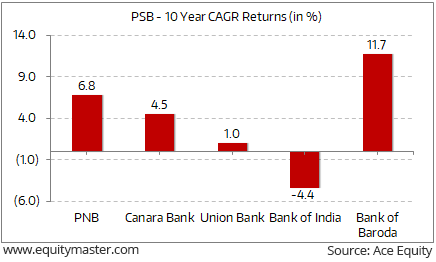- Home
- Todays Market
- Indian Stock Market News December 21, 2017
Sensex Opens Marginally Up; Healthcare & Metal Stocks Gain Thu, 21 Dec 09:30 am
Majority of Asian indices are higher today as Chinese and Hong Kong shares show gains. The Shanghai Composite is up 0.30% while the Hang Seng is up 0.46%. While, the Nikkei 225 is trading down by 0.37%. Wall Street's main indices dipped on Wednesday, pausing after recent record highs as both houses of Congress approved a long-anticipated tax overhaul.
Back home, India share markets have opened the day marginally higher. The BSE Sensex is trading higher by 53 points while the NSE Nifty is trading higher by 16 points. The BSE Mid Cap index opened up by 0.3% while BSE Small Cap index opened the day up by 0.5%.
Barring automobile stocks and bank stocks, all sectoral indices have opened the day in green with healthcare stocks and metal stocks witnessing maximum buying interest. The rupee is trading at 64.06 to the US$.
Bank stocks opened the day on a mixed note with Geojit BNP Paribas and Mahindra Finance leading the gains. Bank of India (BoI) on Wednesday became the eighth lender to come under the Reserve Bank of India's (RBI) prompt corrective action (PCA).
This is in view of high net NPA, insufficient CET1 Capital and negative ROA (return on asset) for two consequent years. This action will contribute to the overall improvement in risk management, asset quality, profitability, efficiency, etc of the bank, the bank stated.
At the end of March 2017, the bank's asset quality worsened with gross nonperforming assets (NPAs) at 13.2%, as against 13.1% in the previous year. Net NPAs, however, improved to 6.9% from 7.8%. For the second quarter ended September, 2017-18, asset quality improved as gross NPAs declined marginally to 12.6% of gross advances, from 13.5% a year ago.
The regulator also placed additional restrictions on United Bank of India, which was the first to go under PCA three years ago.
In light of average bad loans of the public-sector banks acceding "75.53%" of their total worth - hitting a record Rs 9.5 trillion in June - the RBI seems to have started tightening the noose around state-owned banks.
Under the corrective measures taken against the bank, it can now no longer issue fresh loans and also can't distribute dividends.
Though banks are the main source of funding in India, the bad debt problem has not only made these financial institutions weak - and therefore creating a risk of capital erosion - but also diminished possibilities of new lending to relatively smaller companies.
Notably, PSBs are burdened by bad loans that have doubled in the past five years. This has led to a slowdown in the loan growth segment. Due to this, PSBs lost their market share from 70.9% in FY16 to 64% in FY17.
PSBs are in a big mess. They already have a huge amount of bad loans piled up. There is a sense of urgency towards the recapitalisation move. This is because banks have to be recapitalised by 2019 to be compliant with the Basel-III frameworks.
CAGR returns of PSBs in the past decade

While this might help in the short term, it is more important to focus on the lending and corporate governance processes followed by these banks. Unless that improves, we'll have to be content with the 'one day euphoria' instead of a decade of consistent performance.
Bank of India share price opened the day down by 1.8%.
Moving on to the news from pharma sector. As per an article in a leading financial daily, new drug approvals are likely to pick up after the National Pharmaceutical Pricing Authority (NPPA) decided to de-link price approval of new drugs with its internal guidelines, a move seen as a major relief to pharmaceutical companies.
The NPPA has also decided to do away with the practice of deciding a new price for each applicant of a new drug.
According to the body, at a meeting on 15 December, it approved 59 new drugs in cases where the price of a similar drug had already been approved, by extending the prices already notified for these products.
Speaking of pharma sector, there is a structural change taking place in the sector overall as to how business is done and will be done in the future. The pharma sector always traded at premium valuations in the past. It was labeled an 'evergreen' sector. Any small blip was considered an opportunity to buy.
It's important to understand every business has its ups and downs. This is where valuations can help. Here's what Kunal Thanvi, our research analyst, recently wrote about the sector:
- "Pharma companies which can adapt to these changes will thrive in the long run. The uncertainties highlight it important to be stock specific in the sector. It is crucial to look for companies with the competence and staying power to overcome the challenges."
So, what is key to identifying potential multibagger stocks? How does one pick them at the right time and ride them to their full potential? How many multibaggers do you really need to achieve the big riches that you desire?
Most importantly, are there any stocks right now that could turn out to be multibaggers? Click here to know everything that you need to know right now about mutlibagger stocks...
For information on how to pick stocks that have the potential to deliver big returns, download our special report now!
Read the latest Market Commentary


Equitymaster requests your view! Post a comment on "Sensex Opens Marginally Up; Healthcare & Metal Stocks Gain". Click here!
Comments are moderated by Equitymaster, in accordance with the Terms of Use, and may not appear
on this article until they have been reviewed and deemed appropriate for posting.
In the meantime, you may want to share this article with your friends!